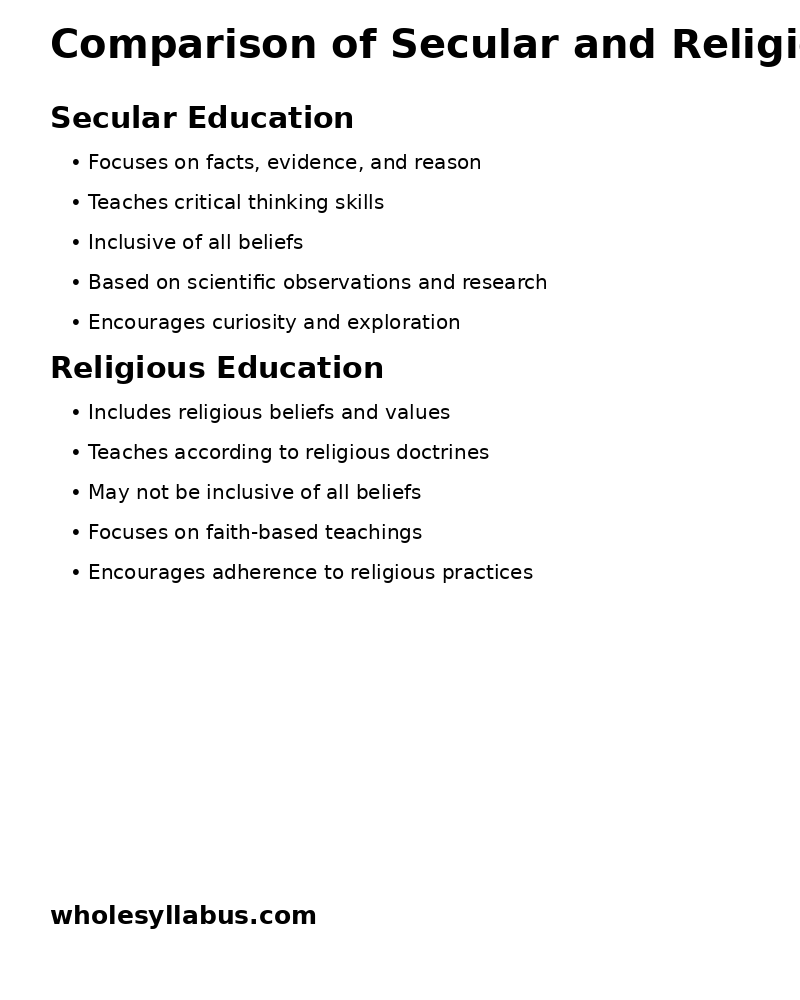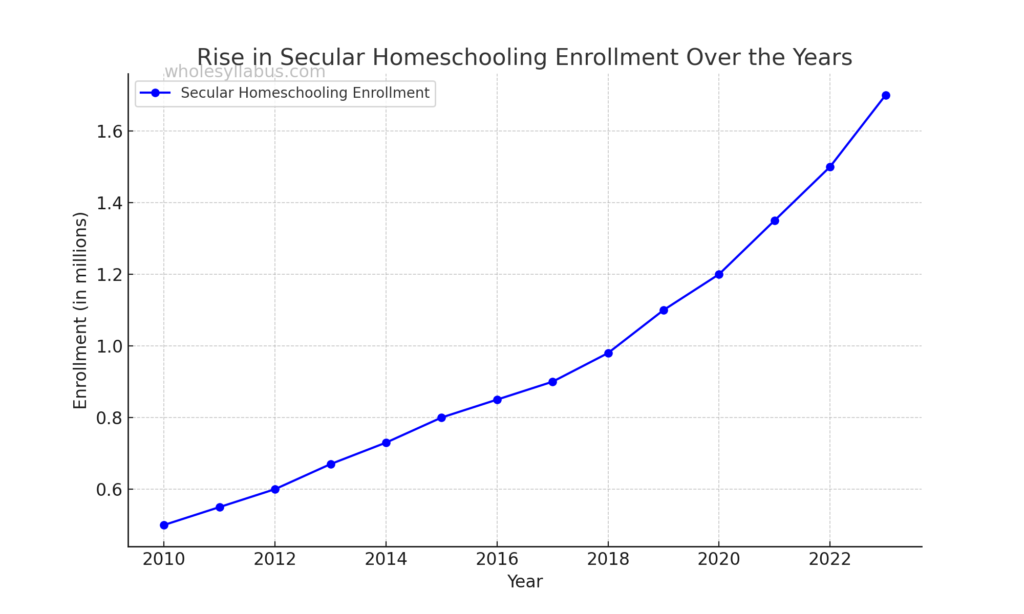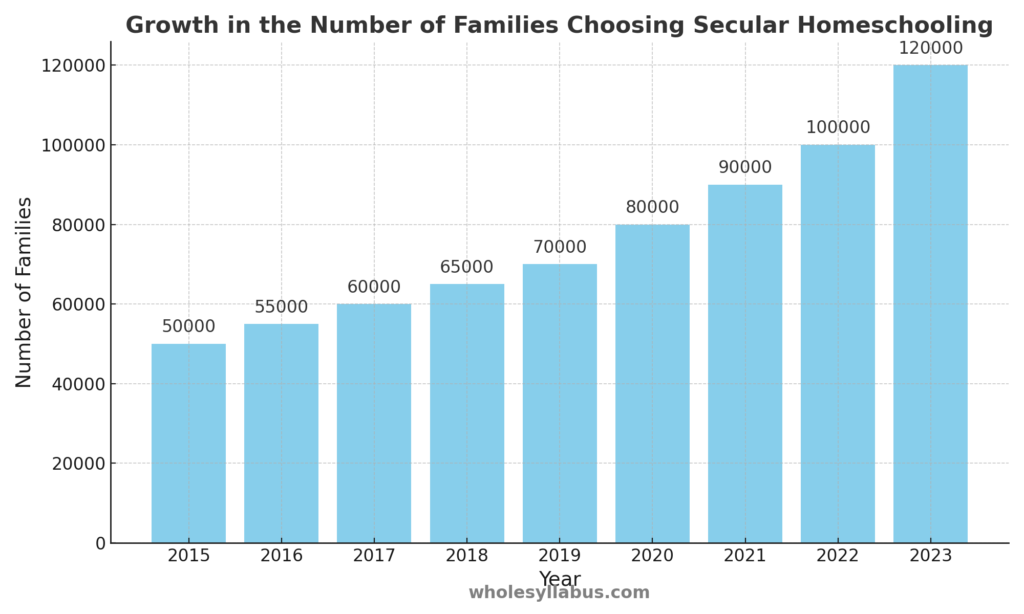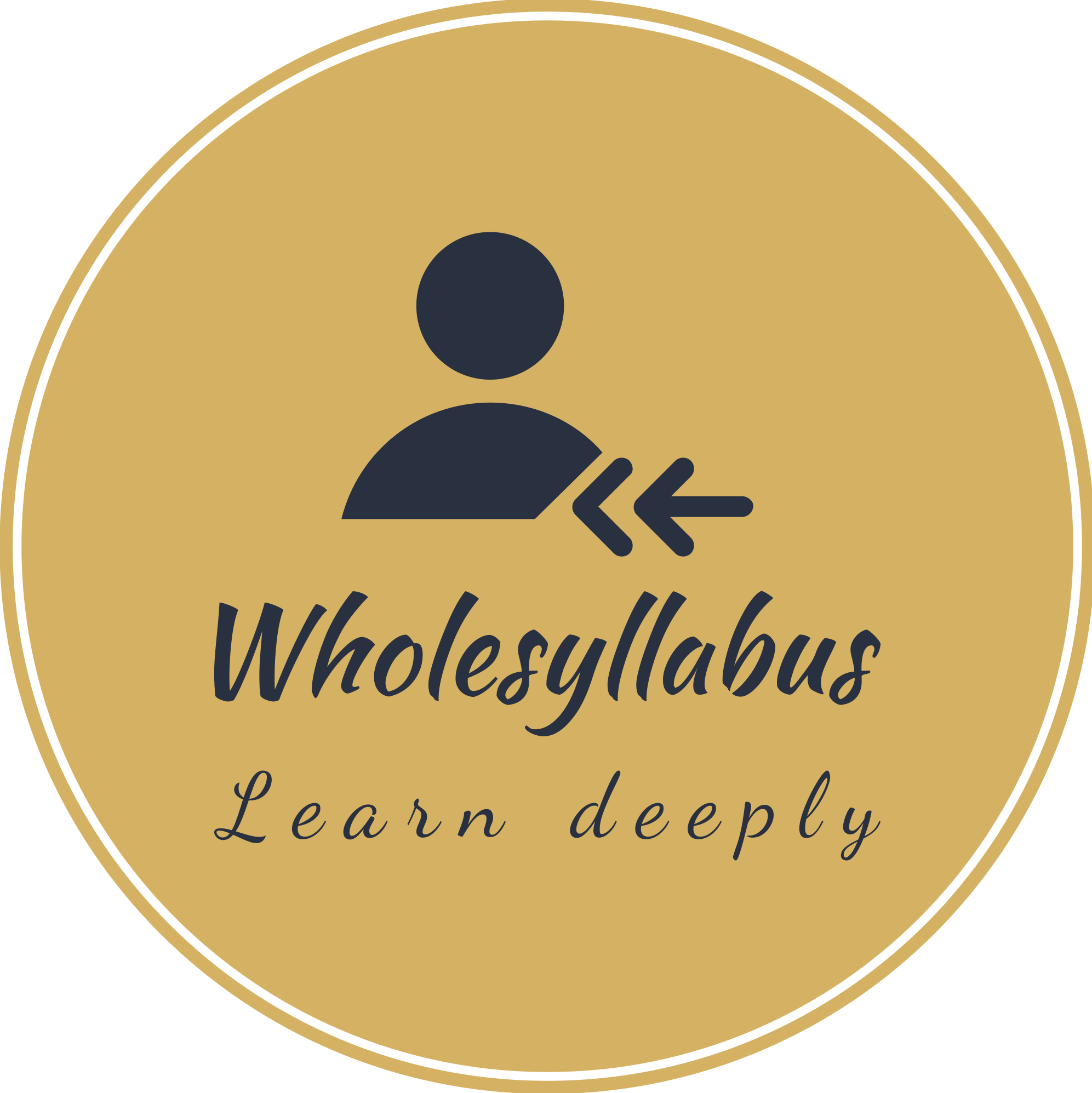This article is designed to guide you through the best secular homeschool curriculums available in 2024. By reading this comprehensive review, you’ll gain insights into various curriculum options, including detailed features, pros and cons, and real-world testimonials from other homeschooling families.
Whether you’re seeking a well-rounded education with core subjects like math and language arts or specialized programs in STEM and the arts, this guide will help you make an informed decision. Dive in to explore the benefits of secular homeschooling and discover the resources and support available to create a successful educational journey for your child.
Why To Choose Secular Homeschooling?
Some families choose secular homeschooling because they want their kids to learn in a way that is neutral and includes all kinds of people and ideas. They like that secular education focuses on critical thinking and understanding the world through evidence and reason. This approach is becoming more popular as more families look for inclusive and well-rounded educational options.
Why Do Families Choose Secular Homeschooling?
Families choose secular homeschooling for many reasons, each as unique as the families themselves. Here are some key reasons why secular homeschooling is a popular choice:
1. Inclusivity and Diversity:
Secular homeschooling welcomes everyone, no matter what they believe. It respects all religions and viewpoints, making it a good choice for families from different backgrounds. This inclusive approach helps children understand and appreciate diversity, which is important in today’s global world.
2. Focus on Critical Thinking:
Secular curriculums emphasize critical thinking and problem-solving skills. Instead of memorizing facts, kids learn to ask questions, analyze information, and think for themselves. This helps them become independent thinkers and lifelong learners. For example, a study by the National Center for Education Statistics (NCES) shows that students who engage in critical thinking activities perform better in problem-solving tasks
3. Adaptability and Flexibility:
Secular homeschooling allows families to tailor the curriculum to fit their child’s needs and interests. Parents can choose materials and activities that match their child’s learning style, making education more enjoyable and effective. This flexibility is especially helpful for children with special needs or those who excel in certain subjects.
4. Emphasis on Evidence-Based Learning:
Secular education focuses on teaching kids through observation, experimentation, and research. This evidence-based approach helps children understand the world scientifically. Programs like Khan Academy and Oak Meadow offer secular curriculums that are widely respected and used by families across the world.
5. Balanced Perspective:
Secular curriculums provide a balanced view of history, science, and literature. They present multiple viewpoints and encourage students to understand different perspectives. This balanced approach helps children develop a well-rounded worldview.
6. Positive Socialization:
Secular homeschooling communities often include diverse families who value inclusivity and respect. These communities provide opportunities for children to interact with peers from different backgrounds, fostering positive socialization. Local co-ops and online forums are great places for families to connect and support each other.
7. Avoiding Religious Bias:
Some families prefer to avoid religious teachings in their child’s education. Secular homeschooling ensures that children receive a neutral education without religious bias, allowing them to form their own beliefs and opinions.
8. Preparing for the Future:
Secular homeschooling prepares children for the real world by teaching them to think critically, understand different perspectives, and solve problems. These skills are essential for success in higher education and future careers. According to a report by the U.S. Department of Education, students who develop strong critical thinking skills are better prepared for college and the workforce.
This approach not only respects all beliefs but also encourages children to become independent thinkers and lifelong learners.
Principles of Secular Education
Secular education is a way of teaching that focuses on facts, evidence, and reason. It doesn’t include religious teachings, making it inclusive and suitable for everyone, no matter what their beliefs are.
Core Principles of Secular Education
- Inclusivity: Secular education welcomes students from all backgrounds. It aims to create an environment where everyone feels respected and valued. This is important because it helps children learn to respect and understand different viewpoints.
- Critical Thinking: One of the main goals of secular education is to help children think for themselves. Instead of just memorizing facts, students learn to ask questions, analyze information, and make their own decisions. This skill is very important for their future success in any field.
- Respect for Evidence: In secular education, learning is based on evidence and facts. This means students learn about the world through observation, experimentation, and research. For example, in science classes, students might conduct experiments to understand how things work, rather than learning from religious texts.
Secular Education VS Religious Education
In religious education, teachings often include religious beliefs and values. While this can be meaningful for some families, others prefer a secular approach that focuses only on non-religious content. This difference is important because it allows families to choose the type of education that best fits their values and beliefs.

Values Promoted by Secular Education
- Fairness: Secular education treats all students equally, regardless of their religious background.
- Curiosity: It encourages children to be curious and explore new ideas.
- Open-Mindedness: Students learn to consider different viewpoints and respect others’ opinions.
Why Secular Education is Growing in Popularity

More families are choosing secular education because of its focus on inclusivity and critical thinking. According to a report by the National Center for Education Statistics, the number of homeschooled children in the U.S. has been steadily increasing, with many families opting for secular curriculums to ensure a broad and unbiased education.
Benefits of Secular Homeschool Curriculum
Secular homeschool curriculums are becoming more popular because they offer many benefits for families. Here are some key advantages of choosing a secular homeschool curriculum:
Inclusivity and Diversity
This means they do not promote any particular religion and are suitable for families of diverse backgrounds. This helps children learn in an environment that values diversity and respects different viewpoints.
Focus on Critical Thinking
Secular education emphasizes critical thinking and problem-solving skills. Children are encouraged to ask questions, think independently, and explore various viewpoints. This approach helps develop well-rounded thinkers who can analyze information and make informed decisions.
Adaptability
Secular homeschool curriculums are often flexible and adaptable to each child‘s learning style and pace. This flexibility allows parents to tailor the education to their child’s needs, making learning more effective and enjoyable.
Strong Academic Foundation
Many secular curriculums prioritize a strong academic foundation in core subjects like math, science, language arts, and history. Programs such as Khan Academy provide high-quality educational resources that focus on hands-on learning and critical thinking skills, making them excellent supplements to any curriculum.
Real-World Applications
Secular curriculums often incorporate real-world applications and practical learning experiences. For example, programs like Moving Beyond the Page use a theme-based approach to integrate subjects like language arts, math, science, and social studies, encouraging children to make connections between what they learn and the world around them.
Community and Support
Many secular homeschooling families find strong support and community through online platforms, forums, and local groups. Engaging with these networks provides valuable advice, shared resources, and a sense of companionship, which can be crucial for both parents and children on their homeschooling journey.
Growing Popularity

Secular homeschooling is becoming more popular each year. The number of families choosing this type of education has increased significantly, as shown in the graph below. Parents appreciate the focus on inclusivity, critical thinking, and adaptability, which helps prepare children for future success in a diverse and rapidly changing world.
According to recent data, secular homeschooling is growing in popularity as more families recognize the benefits of a non-religious-based education. Parents appreciate the focus on inclusivity, critical thinking, and adaptability, which helps prepare children for future success in a diverse and rapidly changing world.

Nawab is an experienced educator with a decade of teaching across preschool to K-12 levels. Holding both a graduate degree and a diploma in elementary education, he is passionate about fostering learning environments that inspire young minds. In addition to his teaching career, Nawab has been actively blogging and writing content for the past four years, sharing insights and resources for educators and parents alike.

2 thoughts on “Top Secular Homeschool Curriculums: Quality Resources Guide”